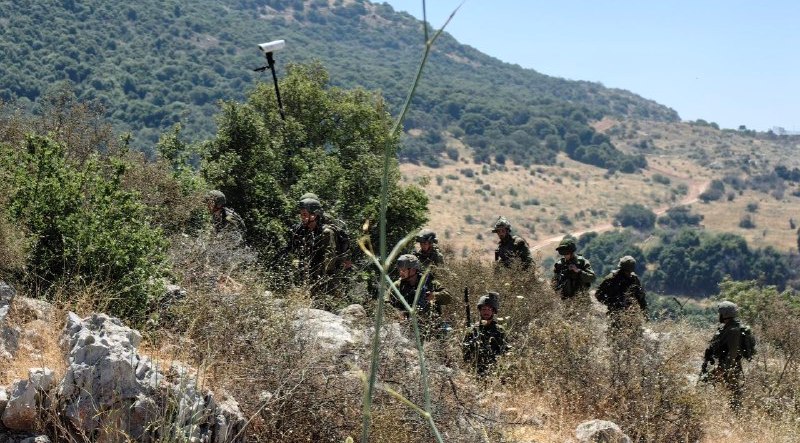Alwaght- On July 12, 2006, Lebanese Hezbollah carried out a retaliatory operation against the Israeli forces stationed on the borders with Lebanon. The attack was in retaliation to captivity of members of the resistance movement in the Israeli prisons. The operation led to capture of two Israeli soldiers and killing and injuring of a number of others.
In reaction, the time’s Israeli Prime Minister Ehud Olmert who found his political position shaky in the Israeli politics ordered war on Lebanon, but after 33 days, the war ended with a UN-brokered ceasefire without any Israeli achievements. In the war, over 1,000 Lebanese, a majority of them civilians, were killed. Also, 160 Israelis, mostly soldiers, were killed in Hezbollah's response.
Now, 17 years after the 33-day war, tensions are running high again in southern Lebanon, and the Israelis are taking provocative actions on the border with Lebanon. Among others, they have held several military exercises in the past few months. Nicholas Blanford, a nonresident senior fellow with the Atlantic Council's Middle East Programs, told New Arab news that if everything is not carefully managed, there is a risk of escalation of tensions and a new military conflict.
After end of Israeli occupation of Lebanon's south in May 2000 until the start of the second war in July 2006, a balance was established in that region where Hezbollah could carry out a certain level of operations targeting the occupiers. Since the 2006 war, Hezbollah has not carried out any major operations along the border between Lebanon and occupied Palestine to show its adherence to Lebanon's obligations to the UN resolution.
Actually, since 2006, Hezbollah has been highly careful not to give any excuse to the Israelis, and that is why since then no war broke out. Simultaneously, the movement closely watches the developments in the occupied territories and last month it set up military tents in the border areas to watch any Israeli provocative moves on the border.
Tel Aviv’s hands tied against Hezbollah
The Israelis are infuriated by Hezbollah’s surveillance measures in the border areas and in the past few days called on the movement to remove its military tents. With the Israeli request being apparently illegal and aggressive and driven on a bullying nature, if the Israeli forces cross the border line, Hezbollah has adequate justification and reason to attack them. The Israeli regime is working with such countries as the US and France to put strains on Hezbollah to remove the tents the movement set up in the border areas and the occupied territories. In a threatening letter to Beirut, Tel Aviv set a deadline and said it, otherwise, will take actions. The Israeli army is pressing the Lebanese military through diplomatic channels to remove the tents.
Blanford believes that there are many options for the Israelis to remove Hezbollah tents, but all of them are very inconvenient and costly for Tel Aviv, and, therefore, Israeli authorities are not interested in entering into a military conflict with Hezbollah due to the high cost. Hezbollah also knows this and that is why it has maintained its position on the border by setting up surveillance tents.
Joe Macaron , a global fellow with Wilson Center's Middle East Program, told Al Arabiya news network that going to a state of instability is not good for Israel, though Hezbollah itself is not seeking another war.
In Tel Aviv, even the most right-wing and hardline figures of cabinet headed by Benjamin Netanyahu do not allow the war to start with Lebanon. As evidence of Tel Aviv's and Netanyahu's reluctance to engage in another war with Hezbollah, Blanford pointed to the Israeli regime's “silent” response to the April 6 rocket fire from southern Lebanon into Israeli regime. Despite the fact that the rockets were fired from southern Lebanon as Hezbollah’s bastion, Tel Aviv did not respond.
However, the situation on the Lebanese-Israeli border is tense and any miscalculation may lead to a full-scale and costly war. The UN plans to send a representative to Lebanon in a bid for de-escalation.
Israeli measures
Recently, the Israeli commander in charge of Israeli forces on the Lebanese and Syrian borders revealed that Hezbollah has started its border activity in two stages. In the first stage, the movement is trying to transfer Radwan elite unit from the depths of the south to new bases in the border region to form a force capable of simultaneously penetrating several Israeli bases. In the second stage, Hezbollah has established border observation posts only tens of meters from the border line with Israel and at a distance very close to the Blue Line, a UN-drawn ceasefire line.
Walla news website recently quoted sources in the Israeli security apparatus as saying that Hezbollah will establish temporary bases on the borders and then will begin the operation of establishing itself through deployment of forces and construction of infrastructure.
In reaction to these Hezbollah moves, Tel Aviv started work to establish barriers in several border bases with Lebanon in coordination with the United Nations Interim Forces in Lebanon (UNIFIL), and at the same time rampped up its spying activities to watch Hezbollah moves. The Israeli cabinet has allocated millions of shekel to this plan that is led by Ori Gordin, the commander of the Northern Command. The plan includes digging canals, building walls, and installing advanced technology wares in the data collection points. Wall news further reported that a month ago, the Israeli army forces in the Shabaa fields area witnessed the unusual activity of Hezbollah near the Blue Line without any intelligence warning. Hezbollah set up two tents and deployed its armed forces to them. This new post has been established in the occupied lands and hundreds of meters away from the movement's military base inside Lebanon.



























